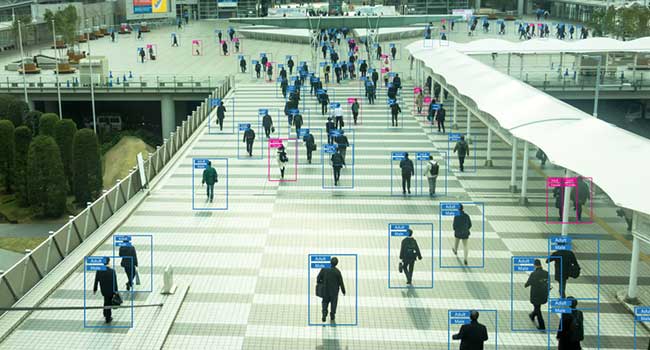
AI, Racial Profiling Put Credibility at Risk
A news report states Hikvision has covered up evidence of racial profiling and Artificial Intelligence errors
- By Ralph C. Jensen
- Jun 28, 2018
A news report led by the U.S. government-funded Voice of America (VOA) states that Hikvision has covered up evidence of racial profiling and Artificial Intelligence errors.
VOA published a report “Technology company Hikvision sees new technology to identify minorities in surveillance video,” on June 16. They also cited a report from the IPVM blog, “Hikvision’s Minority Analytics” report, which was published on May 8, in which IPVM blogger John Honovich revealed that Hikvision, is conducting racial profiling as well as basic errors in their AI system.
VOA is among several international publications to confirm IPVM’s reporting, and are raising concerns about what the Chinese government-controlled video surveillance firm is doing.
A publicity video recently published by one of China's largest video surveillance system suppliers shows that the company’s analysis system has a “minorities” identification project. Some industry media are concerned that this technology will infringe on the rights and interests of ethnic minorities.
According to IPVM, a security monitoring system and video surveillance evaluation website, Hikvision demonstrated the technology at its "Chi Yong Qian Tang AI Cloud" summit.
The information was picked up by China Times Digital, a prominent site critical to the PRC government. IPVM went as far to cite case videos from the 2018 AI Cloud Eco-International Summit website but the part of the recognition of “ethnic minorities” has disappeared from the video, but the Internet being what it is, the original video had been captured, which states that cameras are able to “track specific visitors to monitor and track their position and last appearance….”
An email request for comment was sent to Hikvision’s America’s media staff, without a response as to why the video cover up or why or if they were conducting minority analytics. An email was sent to the corporate media representative, who declined comment.
Censorship is routine with the Chinese government, which covers up information harmful to the China Communist Party. Recently, HBO’s website was banned inside of China when a comedian criticized China’s “Supreme Leader.” It is no surprise that the government could be covering up racial profiling and failure of the much-hyped AI program.
According to IPVM comments, Hikvision seems to have trouble with honesty with its “overseas” Western market, which is no laughing matter. According to Honovich, the company is regularly deceptive about its Chinese government ownership, and he said they ran a false advertising campaign for their AI solution, and misled consumers about their backdoor. “Only a week ago they corrected a false cybersecurity announcement,” Honovich said.
“Hikvision has a difficult challenge,” Honovich said. “On the one hand, Hikvision generates 70 percent of their business inside of China, dependent on being owned and controlled by the Chinese government. On the other hand, Hikvision wants to be a trusted security solutions provider for Western democracies. It simply may not be possible to achieve the latter, given the former.”
VOA interviewed Stephen Bryen, a widely published expert on international affairs and cyber security, wrote an article outlining his concerns about the purchase, saying the Hikvision cameras were never proven to be any more secure than comparable models.
“If the procurement officer actually thought these cameras were more secure than others, that would have been claimed as part of the sole-source justification,” he said of the embassy purchase agreement, adding that no claims of any kind were made regarding the Hikvision products.
“The issue is that the U.S. embassy is installing commercial cameras in one if its most sensitive locations,” Bryen wrote. “This is a big mistake, and mistakes like this can cost lives.”
In the United States alone, the company's surveillance systems can be found everywhere from prisons to airports to private homes and public schools, and even in places with sensitive national security concerns, such as Fort Leonard Wood military base in Missouri. Abroad, its cameras were installed in the U.S. embassy in Kabul, Afghanistan. Hikvision security solutions have since been removed from both locations, and the U.S. House has passed a bill, pending Senate approval, that that would bar government use of Chinese-made video surveillance equipment. This proposed law is pending action in the Senate.